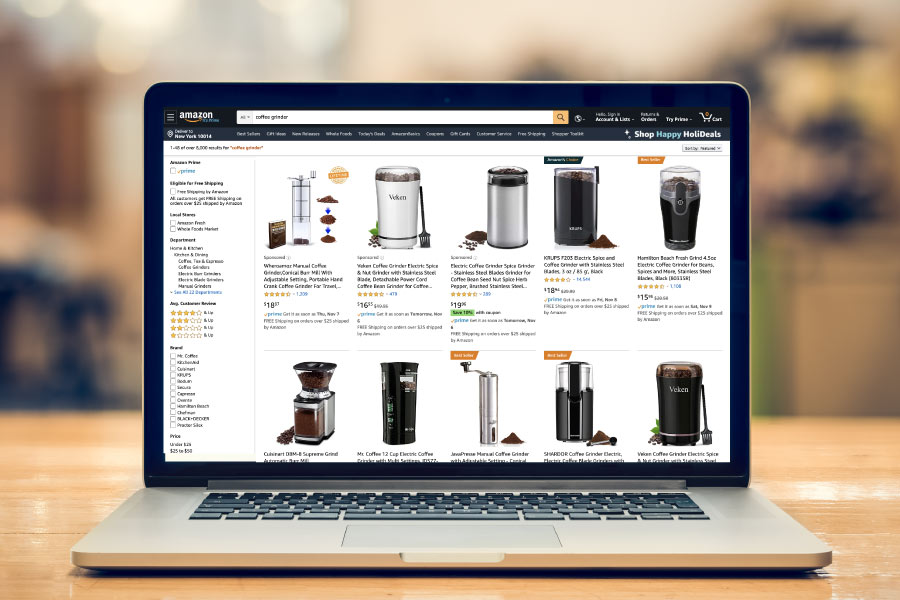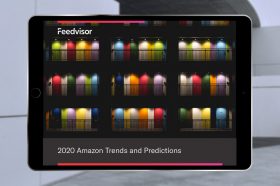Resources - Blog
Are Your Amazon Ads Cannibalizing Your Organic Sales?

Stay on top of the latest e-commerce and marketplace trends.
E-commerce ad spend rose 115% in the third quarter of 2019 compared to 2018, with a significant portion of that growth fueled by Amazon, the longest Prime “Day” in history that spanned two full days, and strong back to school sales. Moreover, 80% of retailers rate their return on marketing investment on Amazon as “good” or “very good,” according to the most recent Modern Retail research report.
Amazon is certainly prioritizing the growth of its advertising arm and experimenting with increasing the number of Sponsored ad placements in organic search results and, as a brand or retailer on Amazon, you should ensure that you have a strategic approach and plan for your Amazon ad campaigns.
However, it is imperative to strike the optimal, healthy balance between paid sales and organic sales, or otherwise run the risk of having your advertising campaigns cannibalize your organic sales. If your paid sales outweigh your organic sales, you can become overly reliant on ads to drive revenue. However, paid sales can also be leveraged to accelerate sales velocity, which in turn can have organic ranking benefits and can positively impact your Best Seller Rank.
How can you tell if you are overly reliant on your ads as a sales driver? While it is difficult to track, if when monitoring your sales you see a high percentage of your sales derived from ads, you are heavily reliant. To a point, gaining sales from ads can be completely harm free and advantageous, but, conversely, it can reduce your overall profits and margins if not caught soon enough.
While both of these scenarios can and do happen, there are a few questions you should ask yourself to help regulate your paid sales:
- What role does advertising play in my overall sales generation strategy?
- Would I be generating the same amount of sales without advertising?
- Is my ranking high enough that I would be getting these sales anyway?
If you are, for example, searching on Amazon.com for a specific laptop model, it is likely that the product is going to be the first organic result you see on Amazon’s search engine results page (SERP). If you are bidding on the exact keyword as well, your ad will also get served next to the first organic search result if you are in the Buy Box.
If your product is coming up first — or in any of the top positions in organic results — you may not necessarily need to bid on that specific keyword. However, should your ranking against that keyword begin to drop, you may consider bidding again on that keyword to support your existing rankings. Whether the sale impacts your organic sales or sales from ads will depend on which option the consumer chooses. Many may not even distinguish between organic and paid listings, as 31% of consumers rarely notice ads on Amazon.
It is an extremely complicated process to actively prevent your ad campaigns from cannibalizing your organic sales, as you would need to track the organic ranking of your ASIN against particular search terms, which are constantly changing. The process is convoluted, as your pay-per-click (PPC) ad may be steering clicks away from another brand’s organic ad, whose own PPC ad could be gaining rank from another brand’s SEO efforts.
Final Thoughts
While there are many caveats involved in the dialogue of organic sales cannibalization, if advertising on a particular keyword is profitable for you, maintain the keyword and continue to bid on it to continue generating sales and rank against that one keyword. You can also leverage your Amazon total advertising cost of sales (TACoS) metric to understand how your campaigns are directly impacting your company’s overall revenue growth, including organic sales.
Learn what Feedvisor can do for your business.
When you partner with Feedvisor, you automatically receive access to our true, AI-driven technology and hands-on team of e-commerce experts. Contact one of our team members today to learn more about our end-to-end solution for brands and large sellers on Amazon, Walmart, and e-marketplaces.



